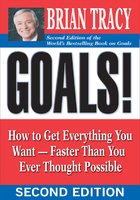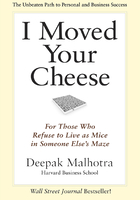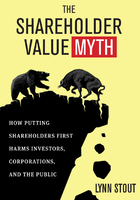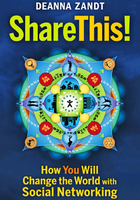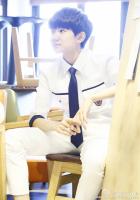What Is a Tiny Business?
Go big or go home is a prevailing but tired and misleading cultural myth.
Risk everything. Don't even bother to try otherwise.
Fight your way to the top.
Be aggressive.
And If You Don't Succeed . . .
You're done.
You're ruined.
You lose.
You'll never be successful.
No one wants to be your friend (aww).
Have I scared you? Going big is not for everyone. It wasn't for me—not like that.
But what if someone asked you: What sparks, excites, invigorates, or inspires you?
And what if I showed you a way to be different in business that also led to success? A way that allowed you to take one step at a time instead of risking everything all at once while leaping into the unknown? A way that lets you intentionally build what you want, going slow and steady, and only picking up the pace when you're ready?
You can have your cake and eat it too. With a Tiny Business, you can make a good living and have a great life.
What a Tiny Business Is
1. Born out of crystal-clear priorities for what you want out of life.
2. Makes you a living and still gives you the space to live.
3. Puts your energy into something that matters exquisitely to you.
4. Grows at your own pace and in alignment with your life priorities.
5. Business on your terms—that fits your life.
What a Tiny Business Is Not
1. Born solely out of the need for a paycheck.
2. Requires you to push aside everything else important in your life.
3. Puts all your energy into making money.
4. Grows for the sake of growth without consideration for your other life priorities.
5. Business on business's terms—that you have to work your life around.
Building Market Value with YOUR Values
Tiny is a laser-focused, disciplined approach centered on making your work work for you. It is rooted in your priorities and supported with tested business acumen. It's a way to start, run, and grow a business where you can stand for something and create a scalable working asset without working 24/7. Tiny Business is a big opportunity; it's your opportunity to drive the bus. You get to build market value with your values.
Tiny does not define the amount of revenue you generate—that can be as big as your aspirations.
Like the Tiny House movement, the first step is getting clear on your priorities. What do you want in your life and your business now and with an eye toward the future? Like a Tiny House, there are things you need to have and things that are nice to have. If your Tiny Business is a journey and you have one small bag to pack for one full year, what needs to be in it?
What's most important to you?
What are you working for really?
What is your “why”?
“
Tiny Business is how you make a living, not a killing.
With a Tiny mindset, you start with what's most important, both personally and professionally, and you regularly visit those priorities for all decisions. You practice discipline by setting a schedule, sticking to it, and getting to work. You build something you are connected to—emotionally, psychologically, and physically—something that feeds your energy.
You select what's essential and then you intentionally remove the obstacles, noise, and clutter—real or imagined. You consciously limit your business and your life to only what you need and want. This is how you create and live an intentional life with less.
“Rich . . . It's about having enough money to live your best life.”
—Amy Adeyemi, Toro Communications
What I wanted was
image A flexible schedule
image Nights and weekends free plus at least four weeks of vacation
image To put my family first (e.g., not missing school plays)
image Time for self-care (daily swim and meditation)
image Financial security
image To believe in what I'm doing 100 percent
image To solve a problem without creating new ones
Yes, I wanted it all. It took a lot of work and a lot of discipline, and I got it.
Tiny Business is serious business. It's complex. It's not an easy, by-any-means-possible, get-rich-quick approach. It is weighted in your values and takes a long view requiring patience and persistence. But once you get clear on what you want, commit to it, and roll up your sleeves, you will begin to see the abundance of resources available to support you and connect you to a like-minded community.
What Matters Most To You?
Here's a picture that maybe describes you . . .
You've got an itch to do something bigger, but you also need to make a living. There's probably a lot of fear around changing things up, depending on what (and who) you're responsible for. I'm certain there's a lot of excitement bubbling around your passion too. Tiny Business is an opportunity to embrace and focus this energy to support you.
If you feel like you're ready to start but you can't put your finger on what's stopping you, that means you need to take a break and unpack what you're asking of yourself.
Start with what you want in life and work.
image Time and money to travel
image Coming home for dinner every night
image Bringing your dog to work
image Easy or no commute
image Working for a brand or business you believe in
If that doesn't feel comfortable, start with what you don't want.
image Limited vacation
image Forty-plus hour workweeks
image Working in a cubicle
image Long commute
image Spending your time on a brand or business you don't trust or believe in
Keep on adding to your lists.
Next, look at your relationships to critical business concepts. What is your understanding and experience of . . .
image Money
image Risk
image Profit
image Success
This stuff seems pretty basic and easy to tick off, but it is very loaded when you dive in.
Begin these conversations with yourself gently at first, but go deeper when you see yourself starting to move away. Do free writing.[1] Keep a journal or, if you're visual, sketch it out or make a collage. Nothing you write, say, draw, or compose will be wrong or right. This is the vulnerability needed to open up and spark what you really want for your life, your business, and the world. This is the foundation of a Tiny Business.
Challenge Your Assumptions
I'm suggesting you start a new and honest relationship with yourself to tackle important conceptual business blocks. Don't be lazy and settle for vague definitions or rely on what you think mainstream culture says.
For example, if you have no idea what “risk tolerance” means, then acknowledge that that's your relationship with this concept right now.
You don't need to know everything to start, but you must have a handle on what you know and don't know.
image
“Are we here yet?”
This is an ongoing process, which I learned the hard way.
Business concepts have deep cultural roots and can trigger very personal reactions. The tendency with unexamined concepts is to avoid thinking about them until absolutely necessary, then reacting emotionally when situations arise.
When situations arise and decisions need to be made, you want to be in the most prepared position possible in order to respond with well-thought-out responses. Start this work when you're not under pressure to respond to anything urgent, and trust that your understanding will grow with time.
Break It Down (Tiny Steps)
The lesson here is incrementalism: break everything down so there is meaning for you. It's about learning how to take tiny steps, starting a personal relationship with your concepts and challenging assumptions so you can pick your best path forward.
Here's where I started:
Money: I didn't have enough, couldn't seem to make enough, and didn't understand what I had—or did not have—access to. This made me feel very uncomfortable. I lied to friends, saying I couldn't go out because I was busy when really I was just broke. I quickly realized that with a business I would have to use and manage borrowed money (i.e., debt) for growth. This started my next conversation on risk.
Before you move to the next conversation, first answer these questions for yourself.
image Do you have money to invest in your business?
image Do you have access to money? If your answer is yes, list all the people and places you can get it and how much from each.
image What's your relationship to having or not having money?
image What's enough money?
image What's your stretch goal and what will it get you?
Business is currency for ideas.
—Me
Risk Tolerance: I had no real idea what my risk tolerance with money was. I'd failed plenty of auditions but those nicked my heart, not my bank account. Being asked to describe my tolerance for risk on a scale from 1 to 10 held no meaning to me. I didn't have anything to lose yet. Like a three-year-old skiing, I was close to the ground. Now, I work with forecasts to analyze and manage risk.
image Are you financially secure right now?
image If so, for how long?
image How much do you need now and three months from now?
image How much can you afford to lose or put toward an opportunity?
image What are you willing to risk being without right now?
Financial Security: Initially this meant paying basic bills plus a little extra for playing. Then it grew to include mortgage and tuition payments, savings, and access to credit. What stage are you in?
image What is the dollar amount on your monthly need to haves (essentials) versus want to haves (desires)?
image What does the space between those two figures tell you?
image How will your essentials and desires change over the next twelve months?
Profit: Don't consume it, use it.
I confused profit with compensation for years. I disregarded the sage advice of “pay yourself first,” totally missing the point of rewarding yourself for your work, no matter the amount. After thirty years in business, I have learned to actively promote paying yourself first. You must put air in your tires or you won't be able to drive the car. But the amount you pay yourself is another discussion. Pick a percentage for your compensation: gross revenue minus your compensation minus expenses equals profit. Think of profit as the asset you can use to build your business.
image What's your current understanding and definition of profit?
image What are your expenses?
image What are you paying yourself?
image How can you use your profits to grow your business?
Success: Success for me meant having the resources for the experiences I wanted now and in the future. Flexibility and good health have been key, allowing for both camping and five-star hotel stays. Now, success includes having a platform and the time to share with an audience what I've learned. Practice painting a picture of what success looks like for you on a daily basis.
image Three years from now, what do you want success to look like?
image Think of yourself at age eighty. What has made your life successful?
The French Press Story
An old friend and I were talking about what it would be like to live on a boat for more than a week. She said, “So long as I have my French press, I'm good. No matter how wet, rocky, steamy, or smelly the boat gets, if I can have a hot cup of java from my French press in the morning, all is good in the world.”
What's your French press, the one thing that can make you feel like everything is okay in the world?
Create a list of things that make you happy, no matter what.
Here's my list:
image Weekends to chill out and be with family and friends
image Beach weeks—it has to be more than a week
image Swimming every day in the summer
image Dinners by the river at sunset
image Buying food at the farmer's market
image Cooking at home
image The ability to buy things, regular things, when I need them (I'm okay with having to save for bigger items)
image Acting and going to the theater when I can
image Visiting friends
image Hiking
image Traveling, whether it's close to home or far away
Figure out what the essentials and desires are on your list. Make sure the essentials are part of your “why.” And don't compromise.

